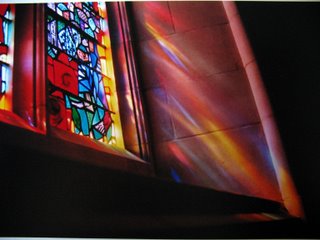Who's judging whom?

Some people have said to me that religion (esp. LDS religion) causes people to be judgemental and prejudiced. I wish I could explain to them, but I never seem to be able to find the words. I wish that they could see that it's my understanding of, and experiences with, my Father in Heaven and my Savior that gives me the ability to look beyond all of that -- to see the truth and goodness in people -- the truth that lies beyond my prejudices, beyond my insecurities, beyond my own fears and weakness.
Everything good that I know...everything good that I am, or do (or say, or feel, or think) - comes to me by God - either by his power or his example. If ever I'm able to look past a persons actions -- to look into the heart of someone else, to forgive or simply to withold judgement -- it's because he has shown me how. I've felt him look into my heart...to see beyond this brief fraction of time, to see why I act the way I sometimes do, to see the real me -- and to love me even when there isn't much there that I can find to love. I've felt him treat me like the woman taken in adultery, prepared for condemnation and death, who found instead compassion, forgiveness, and hope. When I have this in my heart is when I remember to do the same for others. It's only when I forget God that I begin to judge...condemn...despise...fear...hate.
One of the most basely human (and un-godlike) things we possibly can do is to pass judgement on one another -- to see only what is before us -- the surface appearance, the visible action, the person they may be in this moment...while God looks deep within the soul of people, sees beyond the action, beyond the moment -- he sees all that we have been, all that we will be -- he sees what pain we are in that may be affecting our decisions, he sees what we hope to be. He sees what we love and long for - and the stupid ways we sometimes go about trying to achieve it. That is what I see when I practice my religion. It's when I fail to practice my religion, fail to live as God is teaching me to live, that I find myself passing judgement on others.
Why do people get it so backwards? Why, when they see a person of religion who is failing to live their religion, blame it on the teachings - instead of looking at the doctrine and what it is teaching us to do? The teaching of Christ (and the LDS doctrine) is clear in this manner. It makes me sad that so many people cannot see it, and pass judgement incorrectly and unwisely.


